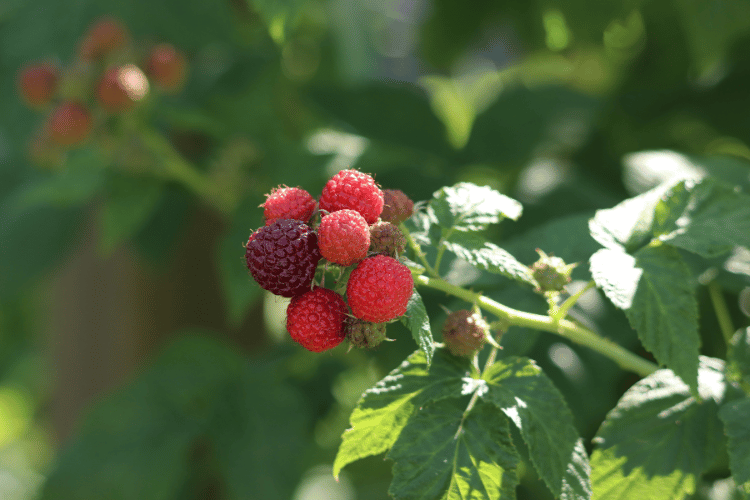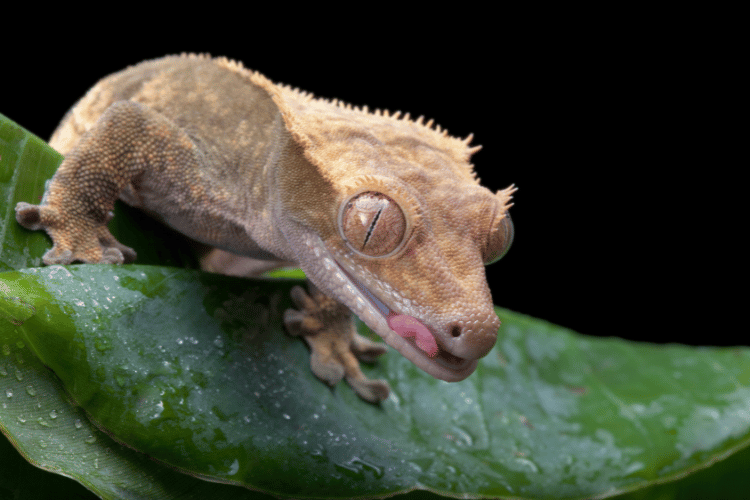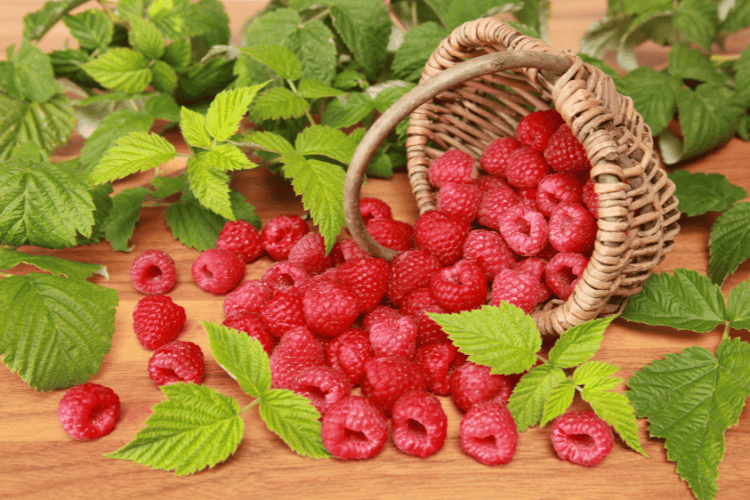Crested geckos are one of the world’s most popular reptile species. They have friendly personalities and taking care of them is a breeze.
That’s why people from all over the globe adopt these little critters. On top of that, crested geckos aren’t picky eaters.
They can live off various fresh vegetables, fruits, and live insects. Although, as a new gecko owner, figuring out what fruits they can eat can be challenging.
At this point, you may wonder, can crested geckos eat raspberries? If that’s your question, you’ve come to the right place. In this article, we’ll walk you through what fruits are safe for consumption.
We’ll also talk about the reptiles’ nutritional needs.

Are Raspberries Safe for Crested Geckos?
Crested geckos can eat raspberries, but it’s not the best idea. That’s because of a chemical called oxalic acid in the fruit.
While small amounts can be safe, too much may lead to a few health issues. To help you understand that, we’ll take a journey through the nutritional needs of these reptiles.
What Are the Nutritional Needs of Crested Geckos?
The popularity of pet crested geckos has skyrocketed over the past few years. That’s because these critters are docile, quiet, and fun-loving.
Moving on, this species is native to New Caledonia. For that reason, they prefer warmer environments with high humidity levels.
Other than that, crested geckos are an arboreal species. This means they like to climb objects and trees.
Another reason these reptiles are well-liked is that they’re not picky eaters.
Crested Gecko Diet
Crested geckos are what we call omnivores. That means they can live off both plants and animals.
Although, these critters prefer wild insects. The majority of pet crested gecko diets consist of caterpillars, crickets, and butterflies.
This will provide the reptiles with all the protein they need for growth and development. Yet, live insects can’t supply all the necessary vitamins.
Because of that, about 30% of the crested gecko’s diet comprises of fruits and vegetables. That’ll give them a healthy dose of minerals.
These include:
- Calcium
- Phosphorus
- Magnesium
- Vitamin C
- Vitamin D3
- Vitamin B
They need these nutrients in specific amounts to stay in tip-top shape.

What Is the Nutritional Composition of Raspberries?
In this section, we’ll go over the components of raspberries.
Humans consider raspberries one of the most nutritious fruits out there. That’s because they’re an excellent source of vitamins C, B, A, E, and K.
Other than that, they contain iron, calcium, potassium, zinc, copper, and manganese. This means they can provide us with all sorts of benefits.
To top it all off, raspberries are a great source of antioxidants.
Luckily, adult crested geckos need all of these vitamins and minerals. So, it should be safe to feed your pet a single raspberry every couple of months.
Anything more than that can lead to some issues.
While they have tons of nutrients, feeding crested geckos raspberries isn’t ideal. This is due to the fruit’s high oxalic acid levels.
What Is Oxalic Acid?
Oxalic acid is a naturally occurring compound that you can find in many citrus fruits. These include raspberries, oranges, and grapefruits.
In small amounts, this chemical shouldn’t do much harm to your pet. Although, as its concentration increases in the gecko’s system, it can cause a lot of damage.
That’s because oxalic acid binds to minerals and forms insoluble compounds. Here’s an example to clear things up a bit.
When calcium and oxalic acid meet in a gecko’s bloodstream, they’ll react. This will result in a chemical called calcium oxalate.
While this compound isn’t toxic on its own, it can lead to a few issues.
The more calcium oxalate forms, the less free calcium ions will be present in your pet’s system. That means it won’t be able to absorb the mineral for later use.
This will result in a calcium deficiency.
Sadly, the same concept applies to nutrients like magnesium and potassium.
What Are the Drawbacks of Crested Geckos Eating Raspberries?
At this point, you should understand why oxalic acid can inhibit mineral absorption. So, in this section, we’ll cover what effects this will have on the overall health of your pet.

Weight Loss
One of the first signs of excess oxalic acid is weight loss. Your crested gecko will find it hard to maintain its mass.
Plus, in severe cases, an oxalic acid overdose can lead to stomach pains. This will make it harder for the critter to eat.
Metabolic Bone Disease
Oxalic acid will affect calcium absorption in your pet’s system. That’ll lead to a common disorder in geckos called metabolic bone disease.
The crested gecko won’t be able to grow healthy bones, which can have many adverse effects.
For instance, it’ll result in bowed legs. This will significantly affect your pet’s ability to move around.
Kidney Stones
Since geckos can’t absorb oxalate compounds, they have to eliminate them. Typically, they’ll do that by urinating the chemicals out.
Yet, this can cause damage to the kidneys. The more oxalate travels to the organs, the tougher it’ll be for them to function.
Sadly, that may lead to kidney stones.
Immunodeficiency
We mentioned how crested geckos need magnesium. Yet, we didn’t talk about the importance of the mineral.
In reptiles, magnesium serves a few functions. For starters, it’ll regulate nerve and muscle control.
Plus, it can aid with the absorption of calcium. Other than that, it helps boost the immune system to keep your gecko healthy.
What Are Suitable Fruits for Crested Geckos?
While you may have to limit raspberries, there are plenty of other healthy fruits your gecko can eat. These include:
- Bananas
- Watermelons
- Peaches
- Dates
- Plums
- Pears
- Mangos
Wrapping Up
Can crested geckos eat raspberries? The simple answer is yes, but there are limits to how much they can eat.
It’s because raspberries contain the chemical oxalic acid. This can bind with minerals and inhibit your pet from absorbing nutrients.
That, in turn, can lead to a few medical conditions. These include weight loss, metabolic bone disease, and kidney stones.
Plus, sometimes oxalic acid can cause problems with a gecko’s immune system.
Instead of raspberries, there are many other fresh fruits that your pet can eat. Some of these are mangos, watermelons, and bananas.
- Can Leopard Geckos Eat Silkworms? - March 11, 2024
- Do Leopard Geckos Climb? - March 4, 2024
- Do Leopard Geckos Bask? The Answer Will Surprise You - February 21, 2024
